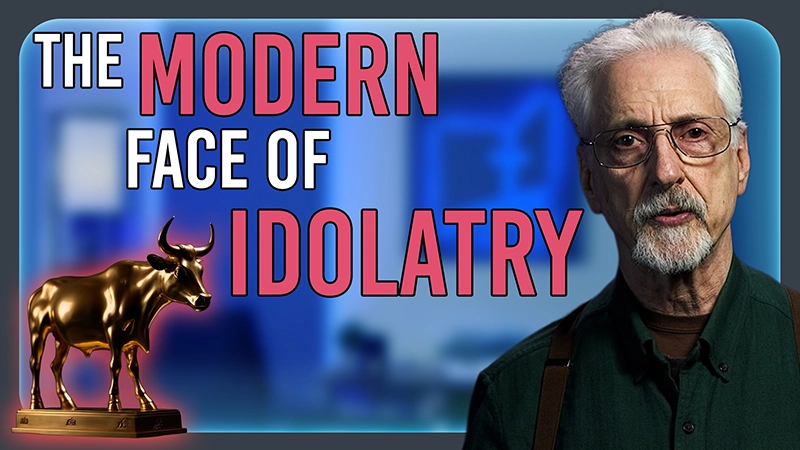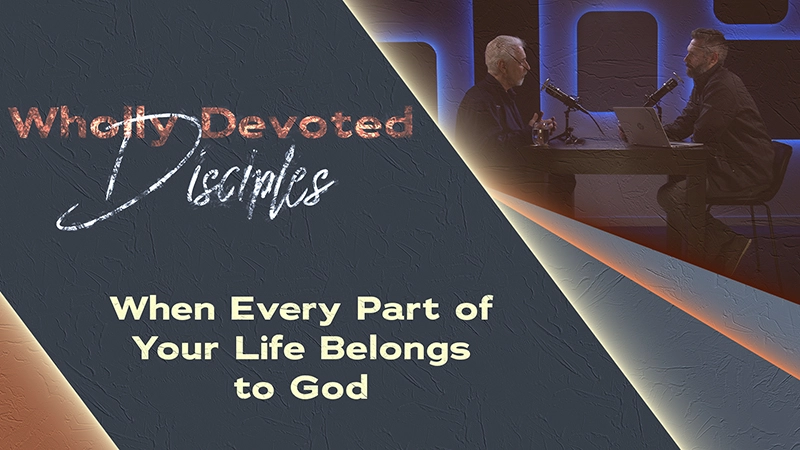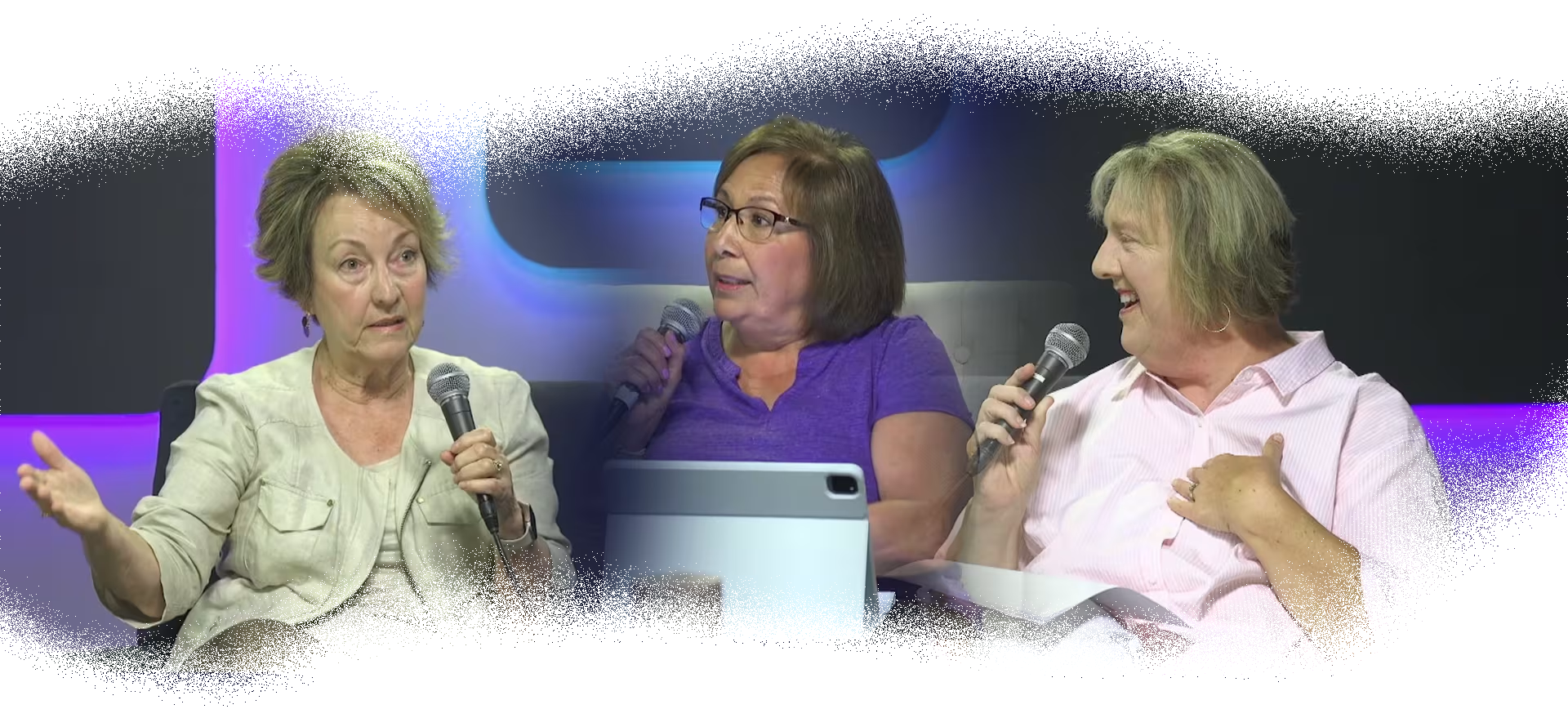
Purity's Hidden Enemy is the "Self-Life"
Pastor Ed Buch unpacks strategies for fighting the tactics of the "self-life" before it sabotages the battle against sexual sin.
Brooks: Pastor Ed, we often hear at Pure Life Ministries that you shouldn't overlook the "self-life" when you try to fight sexual sin. But many people might not even know what the word "self-life" means. Would you say that the self-life is the same thing as being selfish?
Pastor Ed: I would define the "self-life" as really just what the terms "self" and "life" suggest: it's living for self, pursuing what I want, living by my feelings, living for my pleasures, a "me first" attitude. It's me at the center of everything. And I would say that that means it's something more than mere selfishness. Living for self isn't just some character flaw or weakness, like someone who has a tendency to act in a selfish manner toward others. It's a pervasive mindset–a lifestyle that we've come into and adopted. And what really defines it, honestly, is that "inward flow," where everything is geared to benefit me and fulfill my desires or expectations. And that inward flow is the exact opposite of the "outward flow" that Jesus taught us.
Brooks: Is the self-life the same thing as pride?
Pastor Ed: Not exactly. Pride is essentially thinking highly of myself or taking pleasure in who I perceive myself to be. So pride sustains the self-life, if you can picture that. Pride feeds my self-life by keeping my own focus on me, and it also protects my self-life. It's very much like a watchdog that guards the self-life. So if anyone gets between me and my self-image or my carnal desires, they're almost certainly going to be attacked by my pride. I guess I would say it like this: pride and selfishness are indicators that I have a strong self-life, whereas humility and being others-oriented would be indicators that someone has really learned to deny self and to nail self to the cross where it really belongs.
Brooks: Since sexual sin and this self-life problem are going to have real effects on someone, can you give us a picture of the typical sexual addict's day-to-day life?
Pastor Ed: Sure. Let's talk about the typical sexual addict's job. Most are probably employed, but the job is just a means to an end. They're there for the paycheck; they're really not very invested. And they probably are doing a lot of personal things on company time–maybe even looking at pornography while they're supposed to be working.
A lot of sex addicts are also in a double lifestyle. So they may well attend church, but it's probably the bare minimum, and there's no personal devotion life behind any of that. It's just a duty, an obligation that gets performed occasionally–once a week or thereabouts. And on the family side, the problem probably shows up there more than anywhere, because those are the people they're supposed to be closest to. But in reality, a sexual addict has become disconnected from his family and holds them at arm's length with a measure of anger–maybe even unpredictable anger that keeps them from interrupting him or intervening in his pursuit of his self-life. And he's probably full of excuses about why he can't fulfill his responsibilities to his wife or his children or maybe financially.
In general, I would say it like this: he's probably maximizing his time alone, so he can literally give himself over to his selfish desires. It's not a pretty picture, but I want to say that there is hope for this person! He can truly turn around he really takes heed to this issue and begins to dismantle his self-life.
Brooks: Why is dealing with this self life so important if we want victory over sexual sin?
Pastor Ed: Well, the simple answer is that the self-life is the root system that has produced the fruit of sexual sin in a person's life. So if you want to get rid of that bad fruit, you really do have to deal with the root system. I think it's true that for anyone who's been addicted to any form of sexual sin – including masturbation, by the way – that dealing with the self-life is essential for lasting victory.
Lust is part of that inward flow that I mentioned earlier. So lust is taking; it's gaining something for self. And if I'm going to overcome lust, I need to develop that outward flow. I must learn to be a giver instead of a taker. And as that transformation takes place, I am literally having my self-life dismantled. The way to victory over sexual sin isn't to deal with the sexual sin itself, like so many might presume. It's to deal with the root system: the self-life.
{{blog-brse="/blog-ads-storage"}}
Brooks: What are some of the basic steps in the process of dismantling the self-life?
Pastor Ed: It really always has to begin with a relationship with the Lord. The self-life has to be crucified, ultimately. But that will never happen until I first develop a genuine relationship with the Lord. And by that, I mean a relationship that's continually growing through a vibrant devotional life–through prayer, Bible study, and just having communion with the Lord and seeking Him in all the spiritual disciplines that are laid out for us in scripture. And another key part of that process would be having people in our lives that we've given permission to speak into our lives and to call us out on our un-Christlike behaviors. And beyond that, we need to look at what the Bible clearly teaches. Jesus said that we are to "deny self," then "take up our cross and follow" Him. So self-denial and self-control are the biblical mandates that we're given to deal with our self-lives.
What that means in practical terms is that you're literally engaging in a "putting off" and a "putting on" process. It's a process where you're tackling the behaviors that are springing up and flowing out of your self-life. You're literally "putting off" or divorcing yourself from those behaviors–eliminating them all, ultimately. Romans 8:13 comes to mind, where the Bible uses the phrase "mortify (or put to death) the deeds of the flesh." And also, that verse makes it very clear that the Holy Spirit is the one who plays the key role in helping us do that. This isn't something we're able to do in our own strength. And so, in that "putting off" process, the other side of it is a "putting on" process, where we're learning and adopting the behaviors that are Christlike and need to take the place of our former deeds. And let me hasten to add: that's a lifelong process. I don't want to mislead people about that.
Brooks: You've seen that this process of change plays out over the course of months and years in a counselee's life, right?
Pastor Ed: I would hope that the sexual sin itself would fall off early on in the process. But after that, the process of putting on Christlike behavior is a tremendous undertaking. After fourteen years of victory over sexual sin, I'm still pursuing the putting-on process–and, in some measure, the putting-off process. I have not arrived, but I know where I'm headed. And the Lord is able to get us to the place where our victories are more the pattern of our life than our failures.
Brooks: Besides gaining victory over sexual sins, what other changes happen when someone deals with their self-life?
Pastor Ed: The bottom line is that the person is becoming more Christlike. So the works of the flesh are being overcome and are disappearing from his life. The fruit of the Spirit–love, joy, peace, longsuffering, kindness, goodness, faithfulness, gentleness, and self-control–are all becoming increasingly evident. And as a result of that transformation taking place, there is a peace with God that's unlike anything you've ever experienced before. There is actually a true oneness with the Lord developing between you and him.
Brooks: What has this process of dealing with the self-life produced in your own life?
Pastor Ed: Well, for me, that oneness with God that I just mentioned shows up in my relationship with the Lord–in my quiet times, my devotional time with Him. Those times are so much more alive! I'm connected with Him, and I know that I'm connected. So there's something really meaningful happening that draws me in and makes me look forward to my time with God. So I'm not engaging in some duty or obligation, just some dry time with the Lord. Now, don't get me wrong; I'm not saying it's always like peaches and cream. There certainly are times when it's a little more like oatmeal. But by and large, there's something happening between me and the Lord–a connection that is drawing me closer to Him and making it easier to engage with Him.
And along with all of these things, there's that indescribable joy that I've got now, which comes from being in a place where my inside world and my outside world are actually the same. I'm not having to exert all my energy trying to pretend to be someone I'm not. I'm literally at rest inside. I am at peace. I'm no longer driven by those carnal desires that once drove me. And the end result of everything I've just mentioned is an incredible feeling of freedom–a freedom that I can't even begin to put into words for you. But it's real, it's lasting, and it's wonderful.
















